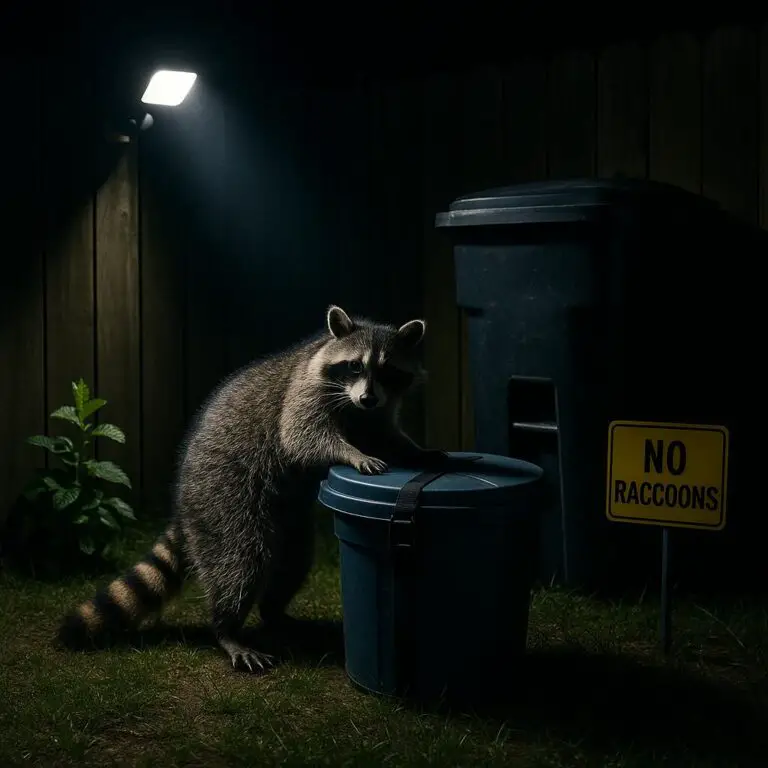Raccoons, with their masked faces and ringed tails, are fascinating creatures to observe from a distance. However, when they start encroaching on your property, raiding trash cans, damaging gardens, and potentially spreading diseases, they can quickly become a nuisance. Fortunately, there are various humane methods to deter raccoons from making your property their playground. One effective method is utilizing sounds that raccoons find unpleasant or threatening.
Understanding Raccoon Behavior
Before delving into specific sounds to deter raccoons, it’s essential to understand their behavior. Raccoons are nocturnal animals, meaning they are most active at night. They are highly adaptable and opportunistic omnivores, feeding on a wide range of foods, including fruits, vegetables, insects, small animals, and even garbage. Raccoons are also intelligent and curious creatures, which can make them difficult to deter using traditional methods.
How Sound Can Deter Raccoons
Raccoons have acute hearing, which they rely on for communication, navigation, and detecting potential threats. Certain sounds can disrupt their activities and create an environment that they perceive as unsafe, prompting them to seek shelter elsewhere. These sounds can mimic the presence of predators or create a sense of discomfort for raccoons, encouraging them to avoid the area.
Types of Sounds to Scare Raccoons Away
- Ultrasonic Devices: Ultrasonic devices emit high-frequency sounds that are undetectable to humans but can be irritating to raccoons and other animals. These devices typically operate on motion sensors and can be placed in strategic locations around your property. While ultrasonic devices can be effective, it’s essential to use them in conjunction with other deterrent methods for optimal results.
- Predator Calls: Predator calls, such as recordings of barking dogs, growling wolves, or screeching birds of prey, can trigger a fear response in raccoons. These sounds mimic the presence of natural predators, causing raccoons to flee the area to avoid potential danger.
- Noise Makers: Loud noises, such as clapping, banging pots and pans, or using air horns, can startle raccoons and disrupt their activities. However, it’s important to note that while noise makers may provide temporary relief, they may not be a long-term solution and can also disturb neighbors or other wildlife.
- Water Sprinklers: While not technically a sound, water sprinklers equipped with motion sensors can effectively deter raccoons by startling them with a sudden burst of water when they approach your property. Raccoons generally dislike water and will quickly learn to avoid areas where they are consistently sprayed.
- Electronic Repellents: Electronic repellents emit a combination of sounds, vibrations, or lights to deter raccoons and other pests. These devices can be set to activate automatically when motion is detected or programmed to operate at specific times. Electronic repellents are often adjustable, allowing you to customize the frequency and intensity of the deterrent.
Here are the Sounds a Raccoon makes.
Tips for Using Sound Deterrents Effectively
- Rotate Sounds: Raccoons are intelligent animals that can quickly adapt to repetitive stimuli. To prevent habituation, it’s essential to rotate the types of sounds you use to deter them regularly.
- Combine Methods: Incorporating multiple deterrent methods, such as sound devices, physical barriers, and habitat modification, can increase the effectiveness of your raccoon control efforts.
- Strategic Placement: Place sound deterrents in areas where raccoons are likely to frequent, such as near garbage bins, garden beds, or entry points to your property. Be mindful of neighboring properties and ensure that sound levels are not excessive.
- Regular Maintenance: Inspect and maintain your sound deterrents regularly to ensure they are functioning correctly. Replace batteries as needed, clean devices to remove dirt or debris, and adjust settings as necessary.
- Be Patient: While sound deterrents can be effective, it may take some time for raccoons to change their behavior. Be patient and persistent in your efforts, and monitor the effectiveness of your chosen deterrent methods over time.
Conclusion
In conclusion, using sounds to scare raccoons away can be an effective and humane method of raccoon control. By understanding raccoon behavior and utilizing appropriate sound deterrents, you can discourage raccoons from frequenting your property and minimize conflicts between humans and wildlife.
Remember to employ a combination of methods, rotate sound stimuli, and be patient in your efforts to achieve long-term success in raccoon management. With careful planning and implementation, you can create a raccoon-free environment that is safe and enjoyable for both humans and wildlife alike.








